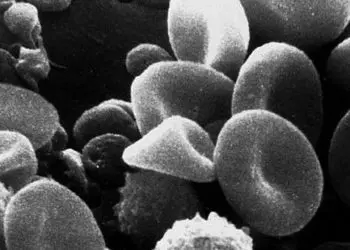Case management program for patient social needs reduces future healthcare use
1. Patients enrolled in the CommunityConnect case management program had reduced emergency department visits and hospitalizations compared to the control group.
2. Savings from reduced healthcare use did not cover the costs of the program.
Evidence Rating Level: 2 (Good)
Study Rundown: Social factors, such as housing, transportation, and food security, are important determinants of healthcare use and outcomes. Social needs assistance programs connect patients with case managers who would help develop patient-centered care plans and provide coaching for accessing public and social resources. Past randomized studies have mostly demonstrated the effectiveness of this strategy in improving patient health and avoiding unnecessary healthcare use in limited sample sizes. The present randomized study is one of the first large-scale studies to evaluate the effect of CommunityConnect, a social needs case management program in the United States, on avoidable healthcare utilization and cost. Participants were followed for one year after enrollment. All-cause hospitalization and visits to the emergency department were significantly lower in participants in the intervention group compared to the control group. Similar trends were observed for avoidable emergency department visits and hospitalizations. Patients under age 40 observed the greatest reduction in healthcare use. However, cost savings from the reduced healthcare utilization did not completely cover the costs of the program. As a limitation, the study cannot accurately evaluate the program’s effectiveness as only 40% of patients in the intervention group actively engaged with the intervention. Rather, this study estimates the population-level impact of implementing such a program by accounting for individuals that may decline services.
Click to read the study in AIM
In-Depth [randomized controlled trial]: The present study evaluated the effect of CommunityConnect, a social needs case management program, on healthcare utilization and cost as compared to a control group. Adult patients enrolled in full-scope Medicaid and at risk for avoidable hospitalizations were randomized into the intervention (n=21,422) and control (n=36,550) groups. Participants were followed for one year after randomization. In the intervention group, 8,577 participants (40%) actively engaged with the case management intervention, though all individuals in the group were included in the analysis. Visit and hospitalization rates were defined as counts per 1,000 patient-months. All-cause emergency department visit rate was significantly lower in the intervention group (96.1%) as compared to the control group (99.6%) with -4.2 visits per 1000 patient-months (95% Confidence Interval [CI], -8.8 to 0.5). The all-cause hospitalization rate was significantly reduced by 11% in the intervention (13.3) as compared to the control (14.9) group (-1.5 hospitalizations per 1000 patient-months; 95% CI, -2.8 to -0.2). Similarly, the intervention group had a significantly lower avoidable hospitalization rate than the control group (-0.7 hospitalizations per 1000 patient-months; 95% CI, -1.3 to -0.2). In subgroup analysis, participants under the age of 40 with no previous chronic disease diagnoses experienced the greatest reduction in emergency department visits. For hospitalizations, the greatest reduction in usage was observed in women, Black or African American patients, and those who were unemployed. Finally, CommunityConnect served 142,800 patient-months and cost $1,880 per patient-year. The cost savings from prevented healthcare utilization only covered 17% of the program cost. This study showed decreased hospital utilization following intervention with a social needs program, especially for inpatient hospitalizations that may be associated with chronic conditions. Further studies are necessary to identify cost-efficient methods of program implementation and specific conditions that may benefit more from the social needs program.
Image: PD
©2022 2 Minute Medicine, Inc. All rights reserved. No works may be reproduced without expressed written consent from 2 Minute Medicine, Inc. Inquire about licensing here. No article should be construed as medical advice and is not intended as such by the authors or by 2 Minute Medicine, Inc.







